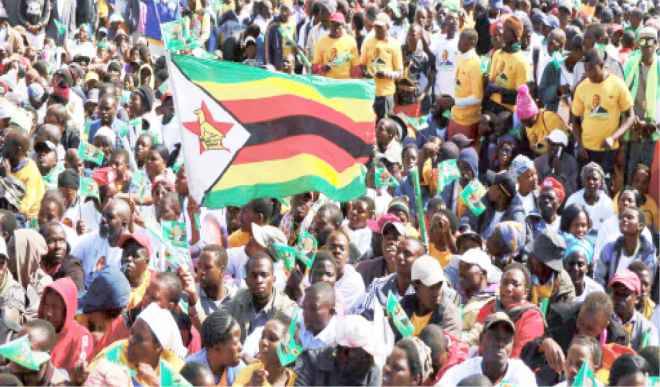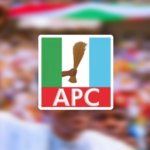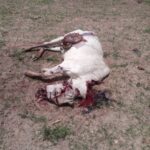
Voters in Zimbabwe will head to the polls tomorrow in an election seen as a critical test for a country wanting to end painful sanctions and secure the International Monetary Fund programme it needs to rebuild a moribund economy.
For the first time since the country’s independence from Britain in 1980, former President Robert Mugabe will not be on the ballot. The 94-year-old was forced to stand down by the military after nearly four decades in office.
Under his rule, Zimbabwe went from being one of the brightest economies in the region to one of the weakest. Opposition parties were repeatedly frustrated at the polls with violence and intimidation.
In 2013, Movement for Democratic Change Alliance, MDC’s lack of access to the electoral roll resulted in a court challenge and poll boycott as the opposition and Western governments doubted the credibility of Mugabe’s victory.
Robert Mugabe’s exit from the scene has led to a flourishing of political ambitions. A total of 23 candidates, all first-time contenders, are running for the country’s top job.
Fifty-five parties are also contesting the parliamentary election. Analysts said this shows how feared the former president had become during his 37-year rule.
President Emmerson Mnangagwa of the ruling ZANU-PF and Nelson Chamisa, leader of the opposition MDC Alliance, are seen as the frontrunners in the presidential race, which also has four women contestants.
Election campaigns have been loud and relatively peaceful but there is concern over a growing number of reports of voter intimidation and threats of violence.
Kofi Annan, the former United Nations chief, is leading a team of observers known as the Elders. “Even though there have been complaints of intimidation, violence, but generally parties have been able to get their work done,” he told newsmen recently.
In a statement, the United Nations Human Rights office said it welcomed the “widening of the democratic space” in Zimbabwe since Mr Mugabe’s removal from office.
“We remain concerned, however, at the increasing number of reports, particularly in some rural areas, of voter intimidation, threats of violence, harassment and coercion, including people being forced to attend political rallies,” it added.
Mnangagwa, nicknamed “the crocodile” because of his political shrewdness, has made a big effort to win over the international community, hosting Western ambassadors, courting foreign investors and even patching up relations with white commercial farmers who were violently evicted from their farms under Mugabe.
“We should cease to talk about who owns the farm in terms of colour,” Mr Mnangagwa, 75, told a crowd of supporters in Harare, Zimbabwe’s capital. “It is criminal talking about that. A farmer, a black farmer, a white farmer, is a Zimbabwean farmer.”
Mnangagwa was a leading member of the ruling ZANU-PF rising to the post of Vice-President in December 2014. He was fired from his position only weeks after falling out with former First Lady, Grace Mugabe.
He had previously held different portfolios in the country including Security Minister and Minister of Justice under Mugabe. He fought in the pre-independence war days when the country was referred to as Southern Rhodesia. Along with others, he received extensive military training across Africa and in China.
Mnangagwa has vowed to deliver a free election and has invited European Union and US observers to monitor the polls for the first time in 16 years. Mr Mugabe had refused to allow them into the country.
The military has also promised to remain neutral, in a departure from previous elections when its senior commanders said they would reject an opposition victory.
But the opposition said tomorrow’s polls are already fraught with problems, with its leader Chamisa alleging that the voters’ roll contains so-called ghost voters and that the ZANU-PF party is tampering with ballot papers.
However, the Zimbabwe Electoral Commission (ZEC) rejected the claim, saying voters’ roll is in “excellent” condition.
Chamisa, 40, a trained lawyer, is Zimbabwe’s youngest ever presidential candidate. He became a member of parliament at 25 and cabinet minister at 31.
He has been unable to keep the MDC united after winning a bitter leadership contest when the party’s founder Morgan Tsvangirai died of cancer in February.
Yet he has surprised many with the speed at which he has gained public support, winning over the youth and unemployed voters disillusioned with the decades of ZANU-PF rule.
He served as Information Minister in 2009 when his boss, Tsvangirai, entered a unity government deal with Mugabe after disputed polls. He was a cabinet minister between 2009 and 2013 till the end of the unity government.
The southern African country practices the popular two-round voting system for the presidential election. The winner is required to garner over 50% of votes to avoid a run-off, which is slated for September 8.
A survey published last week predicted a tight race between Mnangagwa, and Chamisa. The survey, by South Africa-based Afrobarometer, gave Mr Mnangagwa 40% of the vote and Mr Chamisa 37%, raising the possibility of a run-off.
Hollow victory for next ruler
Whoever wins the election will face the daunting task of putting Zimbabwe back on track. Corruption, mismanagement and diplomatic isolation sent one of Africa’s most promising economies into decline.
More than 40 percent of the over five million registered voters are under 35, who hope the outcome of the July 30 elections will help end years of economic isolation.
Zimbabwe is rich in gold, platinum, and other minerals, but unemployment is estimated at over 90 percent, one of the highest in the world. Economic issues were made worse after Mugabe seized thousands of commercial farms owned by whites.
Zimbabwe’s shattered economy is starkly evident in the severe shortage of cash. The cash crisis stems back to rampant inflation which killed off the old Zimbabwean dollar in 2009. The US dollars and South African Rand became the main currencies in daily use.
Banks limit how much cash can be taken out and the black market has become the main source of money for many people.
But Zimbabwe’s problems go far deeper than a problematic currency regime. The government has about 350,000 employees whose wages gulp up almost the entire national budget. Most of the state-owned companies are cash-strapped and dysfunctional.
The country is also saddled with $1.7 billion of arrears owed to the African Development Bank and World Bank that it needs to clear before it can tap new loans from multilateral lenders.
This, some analysts argued, will leave little scope to improve government services, rebuild crumbling transport links and meet a plethora of other election pledges.
Both President Mnangagwa and Chamisa are targeting increased foreign investment as they seek to grow the frail economy and create jobs. They haven’t spelled out how they plan to fund incentives to build mines and factories, or provide the infrastructure those businesses will need.




